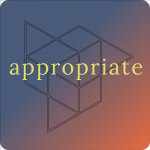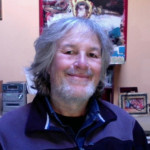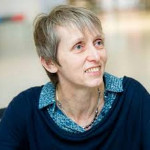
Sharing Economies - Teilen als Alternative zu was?
Teilen als Alternative klingt erstmal vielversprechend. Unternehmen der sogenannten Sharing Economy wie „AirBnB“ und „Couchsurfing“ im Bereich „Homesharing“ sowie „TeilAuto“ oder „Miles“ im Bereich Carsharing knüpfen an diese Versprechung an – und scheinen auf den ersten Blick Lösungsansätze für gesellschaftliche Problemlagen wie den motorisierten Individualverkehr oder zunehmende Vereinzelung anzubieten: Wer sich ein Auto teilt, braucht kein eigenes mehr zu besitzen und verzichtet damit auch auf Privateigentum. Wer in der zunehmend individualisierten Gesellschaft vereinzelt, kann über die Plattform AirBnB authentisch mit anderen zusammenwohnen – wie in einer Wohngemeinschaft oder Kleinfamilie. Dass damit aber auch neue Ausschlüsse und Problemlagen produziert werden können und dass in einer kapitalistischen Gesellschaft zunächst Privateigentum vorhanden sein muss, um dieses anschließend teilen zu können, gerät dabei in den Hintergrund. Christoph Henning und Henrike Katzer arbeiten im Teilprojekt „Dinge verfügbar machen. Eigentum als spezifische Form der Weltbeziehung“ des Sonderforschungsbereiches und forschen zu genau diesen Ambivalenzen der Sharing Economy an den Beispielen Car- und Home-Sharing. Im Gespräch mit Charlotte Domberg berichten sie über ihre Forschungsergebnisse. Henrike Katzer studierte Psychologie und Soziologie an der Universität Koblenz-Landau (2014-2017) sowie Soziologie an der Friedrich-Schiller-Universität in Jena (2017-2021) und an der Haifa University in Israel (2019). Zuletzt schloss sie ihre Abschlussarbeit ab, in welcher sie daran arbeitete, die israelisch wissenschaftliche Aufarbeitung der Situation der Frauen in den Anfängen der Kibbuzbewegung für die Care-Arbeitsdebatte anschlussfähig zu machen. Derzeit forscht sie innerhalb des Teilprojekts des SFB-Transregio „Dinge verfügbar machen. Eigentum als spezifische Form der Weltbeziehung“ zum Verhältnis von Weltbeziehung und Eigentumsformen. Christoph Henning ist Philosoph und Soziologe und forscht zu Fragen der praktischen Philosophie und Sozialtheorie. Zu seinen Schwerpunkten gehören die politische Philosophie und Ethik des Perfektionismus, die Ideengeschichte des Marxismus und der Kritischen Theorie, moderne Kulturtheorien und Philosophien der Natur. Nach seiner Promotion an der TU Dresden war er an der Zeppelin Universität tätig (als postdoc und als Vertretungsprofessor). Er habilitierte in Philosophie in der Schweiz (an der Universität St. Gallen) und ist seit einiger Zeit Fellow für Philosophie am Max-Weber-Kolleg der Universität Erfurt. Seit Anfang 2021 arbeitet er mit am SFB Transregio 294 an der Friedrich-Schiller-Universität Jena im Projekt C06: “Dinge verfügbar machen”.





